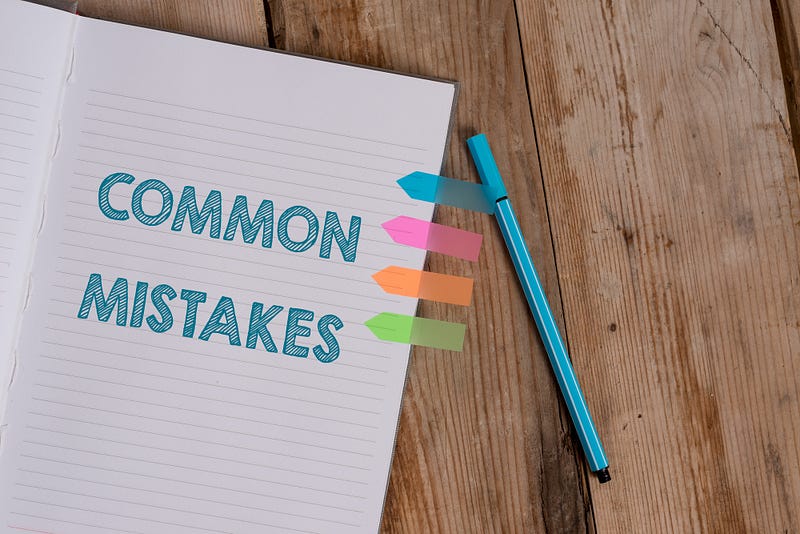Don’t Wait To Feel Inspired: Tips to Get You Writing When You Don’t Feel Like It

When it comes to writing, don’t wait to feel inspired.
If you wait to write only when you feel inspired, then you won’t finish. At best, it will take you much longer to write that paper, report, article, blog post or book you are trying to write.
Waiting to feel inspired is just not going to work, especially if you are, or want to be, a professional writer, or if writing is a large part of your livelihood and the way you make some income.
Here are some quotes and tips to get you writing again when you feel least inspired.
“I don’t wait for moods. You accomplish nothing if you do that. Your mind must know it has got to get down to work.”
~ Pearl S. Buck
Writing is hard work. Think of your writing as a job and you are the employee. You are accountable to your employer by the end of the day. The only difference here is that you are the employer and as such, you should expect your employee to do the work that you are paying them to do.
“Amateurs sit and wait for inspiration, the rest of us just get up and go to work.”
~ Stephen King
The answer sounds easy, just go ahead and put pen to paper, or fingers to keyboard and write. But that’s easier said than done.
We all have those moments when we just sit and stare and wait for inspiration that doesn’t seem to come. Here are some common reasons that stop people from writing, and suggestions on how to overcome inertia and get the words flowing again.
You’re not sure what to write about.
“Everybody walks past a thousand story ideas every day. The good writers are the ones who see five of six of them. Most people don’t see any.”
~ Orson Scott Card
If you are stuck on what to write about, think about why you wanted to write whatever you are writing about in the first place. Why are you writing this blog post, this article, this report, or this book? Write down why you are writing it as if you are telling someone about it. Just keep going. This exercise will generate more topics or plot idea as you follow through on this. As you continue with your written conversation with yourself, keep thinking of who you are writing for.
You know what you want to write about, but you’re just not sure how to keep going.
“Address the people you seek, and them only.”
~ Claude C. Hopkins
The solution to this problem goes back to remembering who you are writing for – your ideal reader. If you were your ideal reader, what would you want to know? And in what order do you want the story or the information to flow? Write for yourself as your ideal reader.
If the words still don’t flow, take a break. Go for a walk, exercise, or read a book. After 30 minutes, get back to work. Read over the last five pages you have written and be inspired by your own writing. You are jump starting from your own words.
If that still doesn’t work, start writing anything. Write. Tell your ideal readers what you just did. Tell them about what you just read, or something about the walk you took. You can even write about not feeling inspired to write.
A strange thing begins to happen as you share your thoughts with your readers in this exercise. You are giving your brain a chance to get back into the creating mode. The cobwebs clear and the inertia begins to fade. Your thoughts start flowing again and before long, you are back to writing.
You feel uncertain that you know enough compared to what others are doing. You are discouraged.
“The most important thing in writing is to have written. I can always fix a bad page. I can’t fix a blank one.”
~ Nora Roberts
Don’t fall for this fallacy, often referred to these days as “imposter syndrome.” Don’t compare yourself to others. Tell yourself, if they can do it, so can you. Believe that you are unique and so is your voice. No-one else can write the way that you write. Your voice, style, expertise and experience are uniquely yours.
You’re not sure that anyone is interested in the stories you want to tell, or the information you want to share.
“There is no greater agony than bearing an untold story inside you.”
~Maya Angelou
This goes back to remembering who you are writing for – your ideal reader. Your ideal reader wants to hear from you, and that ideal reader could be one or could be thousands. It does not matter. Write for that one reader who wants to hear from you and give that reader your all. Imagine that one person who needs to hear from you and looks up to you to tell the story or impart the information that only you can provide.
All writers experience these feelings at one time or another. But the important thing is to just keep going. It is the only way to finish. I will end with these final quotes:
“Start writing, no matter what. The water does not flow until the faucet is turned on.”
~ Louis L’Armour
“A professional writer is an amateur who didn’t quit.”
~ Richard Bach
If you have enjoyed reading this post and found it helpful, you might be interested in reading my other articles, Not Sure What To Write About, Then You’ve Missed A Step and Why Writing By Hand First Can Help You Write Better.
When To Write A Book To Promote Your Business

Writing a book is one of the most effective ways to promote or market your business.
You can write it yourself, or you can work with a book coach to help you write it, or you can hire a ghostwriter to write the whole thing for you.
You already have a niche audience who wants to hear from you
Let’s take a look at some of the reasons why writing a book to promote your business is a good idea.
Think about it. If you own your business, then you already have experience and expertise in your field. When you write a book about the business you’re in, all you are doing is sharing your wealth of knowledge with your readers.
Your ideal readers are the people who are interested in the types of products or services that your business offers. They are your present and future clients or customers.
As a published author and entrepreneur, you will be perceived as a credible expert in your field and stand out from your competitors.
You’ll reach a wider audience of potential clients or customers.
Writing a book to promote your business can lead to other lucrative opportunities. Someone who reads your book – an individual, or company CEO – may get in touch with you to purchase your book in bulk for their employees.
You may be invited to speak at an event, or perhaps become a consultant for a multinational firm or to appear on tv shows or podcasts.
When your readers consider purchasing products or services from businesses like yours, they will remember you.
And finally, you have the opportunity to add your company story and contact information at the end of the book.
Here’s my story
I’m a writer and an editor. I edit fiction and non-fiction children’s books across all genres and formats, from picture books to teen/young adult. I also edit nonfiction books for adults.
But, I am also in the travel business and co-own a travel and tour operator company based in Ghana and the USA.
In 2017, I noticed that an increasing number of African Americans were considering moving to Ghana. Since I’m very familiar with much of the country and live in Ghana for at least half of the year, I decided to write a book about what it’s like to move to Ghana.
What better way to combine my experience, knowledge, research skills and love of Ghana than to write a book.
In 2018, I wrote and published, “Moving to Ghana: The Essential Things You Need To Know.” I used the book to share what I know about life in Ghana. My focus was on delivering the valuable information my readers wanted and needed.
My ideal readers are people considering moving to Ghana. I had a clearly defined audience that I was writing for. My ideal readers are also our ideal travel clients.
What I didn’t do was write a book to promote my business. I just wanted to be there for them, and to answer the questions they had and offer solutions.
I wanted to establish myself and our company as a “go-to” source of information and assistance for whenever they were ready to travel or move to Ghana.
By writing a book, our company gained visibility, and stood out as credible and knowledgeable about traveling to Ghana and possibly making it a new home.
So back to you. What business are you in?
What business are you in? Think about what you do and how your business helps your customers. What do people want to know about the business your are in and the services and products it offers. What are your clients’ issues or frustrations? What do they really want? What do they need to know?
Now look at what you do. What can you share with your customers that they would really love to know, or would be helpful for them to know?
Your answers may just be the starting point you need to get started on writing a book to promote your business.
With the ease of self-publishing today, you can write and publish a book, promote your business and position yourself as an expert in your field.
You can do it. You have nothing to lose and everything to gain.
#writing #writingtips #businesswriting
Ready to get started? Join my email list today and grab your copy of Write a Book to Promote Your Business Writing Strategy Guide.
Not Sure What To Write, Then You’ve Missed A Step

You’re ready to write, but all of a sudden, you’re not exactly sure of what to write about, or how to start.
Writer’s Block.
Has that ever happened to you? If it has, then it means you might have missed an important step.
Whether you’re an author writing a book.
Or perhaps you’re a business owner writing a company product or service guide.
Or an employee assigned the task of writing a departmental report.
Or a manager of a nonprofit organization and writing a grant proposal.
Here you have several different writers, but they all have the same problem.
They’re all struggling with the same scenario, sitting at their desks and ready to write. They each have a general idea of what they need to cover, but they are just not sure how to get started.
Sound familiar?
You stare at the blank screen or the pristine white page, but the words don’t come.
The words don’t come because you’ve missed something critical.
Who are you writing for?
The words don’t come, and here’s why.
You have not yet narrowed down who you are writing for. You have to be specific about this.
When you don’t know who your ideal reader is, then you won’t know what to say to them, or how.
Before you write, you have to decide who your reader is and then you’re going to get into their minds and become crystal clear on what they want to know from you. Only then will you be able to write to them.
Once you have identified your ideal reader and keep them in mind as you start to write, you’ll feel the frustration ebb and the words begin to flow.
And in no time at all, you will have written that book, guide, report or proposal.
Know your reader.
Why Writing By Hand First Can Help You Write Better

Writing by hand (longhand) or direct to computer? I’ll choose pen and paper first. Every time.
I love it.
It all began once upon a time when I was a child in Enugu, Nigeria. My dad used to bring home long sheets of engineering draft paper – unlined white crinkly paper, which we, the kids would spread out on the cool tile floors in our bedrooms and then proceed to lie on the floor writing and illustrating our stories with pencils and crayons.
Writing by hand was a perfect way to spend hours of time
What bliss!
Later in life as I sat in university lecture halls during microbiology, parasitology, organic chemistry, anatomy and physiology and a host of other classes, I’d write copious notes by hand and developed the skill of writing down the essential information I needed to know.
I noticed that I remembered and retained the knowledge I had written by hand, more clearly than just by reading the textbook. In fact, I supplemented textbook reading with my own notes.
I ran across a 2014 Study that indicated what I had noticed all along. You learn and remember more, conceptually, when you take notes by hand. Needless to say, I did quite well in those courses. I really enjoyed them.
It is not inconceivable that writing by hand may help you better remember or keep track of the different aspects and details of your work or storyline as you write as compared to typing it out first.
When I write books, or anything really, I always start with pen and paper. Rarely do I type first. Except for informal email messages. It has something to do with how my brain works.
When I write by hand it’s as though my thoughts form and wrap themselves into cohesion as the impulses flow from my brain down to my fingers.
The creative process occurs at lightning speed as nerve impulses race down my arm and as the words begin to flow from fingers to page.
I am creating as my fingers write. Laser focused.
When I write by hand, everything else fades into the background because my attention is completely centered on capturing all the thoughts before they rush past me.
Ten to fifteen minutes after this process begins, I’ll enter into a zone where my brain works faster and faster and I have to write faster to keep up. And while the first few pages of writing may be rusty or downright bad, the more I write the better, more cohesive the writing becomes.
Ever wonder why sometimes you read over something you’ve written when you were in the zone and you say to yourself, “Wow! This is good.” It almost feels as though someone else wrote it. For me, this is the best feeling in the world. I never get this sensation when I type directly on a keyboard.
And another thing that happens is that when I write by hand and get into the zone, I find that I don’t have to edit as much when I go back over what I have written.
I am fully engaged in creating and editing, consciously and unconsciously.
When creating and typing directly on the keyboard, which I do very occasionally, it actually takes me longer to get a final copy that I’m satisfied with. I don’t seem to get into a writing fast and creatively writing zone.
Perhaps it’s because I’m continually distracted by the blue and red wavy lines popping up on the screen informing me of some mistake.
Or maybe it’s because I’m too busy making sure my fingers are positioned above the correct keys.
I keep having to resist making small corrections in spacing, spelling and grammar as I type. So while typing would seem faster at first, it does not end up saving me time at all.
It seems counter-intuitive, but I save time when I write everything out by hand, and then type and save what I have written.
There’s something so satisfying about seeing the evidence of my writing and creativity on paper in my own handwriting.
I can write wherever I go. All I have to do is carry along pens and paper – on a plane, at the park, library or café. I can write where there is no electricity, no battery charges, no equipment. I can write in bed, or cruising down a river in a small boat!
Just pen, paper and my brain, and I am set.
Here are just a few well-known authors who sometimes write by hand – J.K Rowling, Kristen Hannah, Stephen King, Neil Gaiman and Joyce Carol Oates.
What about you? What’s your experience? What works best for you?
You Don’t Have To Stick To One Niche
Write About What You Know

Stick to one niche is the advice you often hear repeated over and over in writing courses, workshops and books. But who is one dimensional? Certainly not me, and I suspect, neither are you. So why should your writing be? I am referring specifically to non-fiction writing. You don’t have to limit yourself to one subject area or niche.
Focus on who you are writing for and why
It depends on why you are writing about a subject and who you are writing for. If you are in a niche business and trying to establish yourself as a credible resource person or expert in a particular field, then by all means concentrate on writing in that niche.
For instance, I am one of the owners of a travel planning and tour operator business with a focus on designing custom designed travel experiences in African countries. When I am wearing that hat, I write articles and social media posts in the area of travel to Africa. I even published a book.
I have specialized knowledge that can educate, entertain and most importantly, help my readers to achieve their goals. My ultimate aim is to help, and by writing in this area, I am establishing myself as a credible source of information when it comes to travel and sharing my expertise, based on knowledge and experience. It’s a win-win situation. I am helping others and at the same time I am helping myself and my business. For instance, Reasons to Add Ghana to Your Bucket List of Countries to Visit is an article I wrote when I was writing from the travel angle.
But, I’m more than a travel specialist. I’m also very knowledgeable when it comes to children’s literature. I’ve reviewed numerous children’s and young adult books for a national book review publication and worked in the youth services department of a public library for eighteen years. For fifteen years, I ran a popular writing club for young writers, and I am a published author of children’s books.
When I write to help writers and parents, I write from this perspective, based once again, on my knowledge, experience and expertise. I know what I am talking about when it comes to children’s literature and how to encourage children to read and to write. I am certain that I can help others by sharing what I know about this topic. Writing for Children is Hard Work is an article I wrote about the challenges of writing for children.
Here is one last thing
I am an avid reader. I will read anything, as long as it captures my interest. It’s the same thing for many other readers. In non-fiction, it is the title that grabs the attention first, not the author’s name.
When I am searching for information, I don’t start by looking for a specific author in a particular niche. For readers like me, it is topic first, author second. And honestly, with so many writers “out there,” who can possibly know the names of all the brilliant writers writing in a particular niche at a particular time?
The topic lures your reader, and then it is up to you to prove yourself through your writing, expertise, experience and the way you connect with your reader.
So I say to you, don’t limit yourself. Go on ahead and write about what you know. Don’t hold back. Believe me, there are readers who need to hear what you have to say, or who have questions that you have the answers to. Be generous. Share yourself. Share your knowledge and share your experience with them.
With passion, knowledge and experience, you can write about anything!
So You Want to Write for Children
Watch out for these 7 Common Mistakes

The idea has been floating around in your mind for years. You want to write a children’s book. Wonderful! Now is the perfect time to get started. But before you begin, take a moment to read over these 7 common mistakes made by beginning writers.
Once you’ve read over the mistakes to avoid, pull out your notebook, laptop or other device, make yourself comfortable and get started.
Common Mistake 1: Writing that “talks down” to children
Children, even very young children from beginning or emergent readers and up, are very astute. They can tell when a story is condescending, or to put it in their own words, “is a baby book.”
Trust me, when a young reader or listener is choosing a book to read, and says that a particular book is a “baby book,” it does not bode well for the book. It means that they they are not interested in the book at all. The author has already lost that reader.
A child will label a book baby-ish, when the writer uses overly simplified language and situations that are out of synch with the age of the reader.
Common Mistake 2: Writing a story that is too didactic
The writer has written a story that is “teachy” or “preachy.” The lesson or message of the story is too obvious.
Instead of letting the young reader or listener learn the lesson through the events of the story as they unfold , the writer tells them what to think, feel or learn.
Making this mistake leaves nothing for the child to delight in discovering and ends up sounding more like a lecture.
Common Mistake 3: Not understanding their ideal reader or listener
Children represent a wide and diverse range of audiences. Books written for babies differ from those written for preschoolers. An early chapter book is different from one written for a middle grade reader, and so on.
Each audience is different in terms of reading and comprehension levels. Hence, the vocabulary, length of sentences, sentence structure, number of pages, complexity of the story and the approach taken will vary depending on the audience.
When a writer has not determined the ideal audience for their book, then the story is going to be either too complex or too simple for readers and the question arises, “Who is this book for?”
Common Mistake 4: Unrealistic dialogue and situations
This mistake is closely related to Mistake 3. Not knowing who the ideal audience is will affect the conversations of the characters and the situations they face.
When children interact, play and talk with each other, there is a vast difference in how the various age groups express themselves verbally and physically, as well as how they relate to each other within the context of the everyday events going on in their “world.”
Common Mistake 5: Using dry passive text
When this mistake occurs, the text sounds like one description followed by another and another. In other words, the story sounds more like a summary of events and lacks a sense of excitement and engagement. Using the active voice will draw readers and listeners into the story.
Common Mistake 6: Taking too long to get into the story
The writer spends too much time setting up the story and adding background details. The result is that the reader will begin to lose all interest before the story even begins.
Provide just enough information in the beginning and then get right into the story. This is called the hook. The key is to grab the reader’s attention right away.
Common Mistake 7: Failing to understand that young readers need a happy or hopeful ending
This is the case for books written for toddlers to middle graders. At this time in their lives the books they read should end on a positive note. Yes, there can be challenges and ups and downs throughout the story, and sometimes everything does not end perfectly, but for children at these ages, the ending has to be hopeful, if not happy.
Parting thoughts
So of the 7 common mistakes to avoid, I’d say the one to tackle first would be Mistake 3.
If you identify your reading or listening audience before you start writing, you’ll save yourself a lot of time and frustration. It will be much easier to write your story when you understand everything you need to know about the reading and comprehension level, as well as the life experience of your ideal listener or reader. This is the single best way to connect with and make an indelible impact on the person you are writing for.
Now that you know the mistakes to avoid, start writing and don’t forget to check out my article, Writing for Children is Hard Work: Tips from a Book Reviewer. (Be sure to click on the title here)
Writing for Children is Hard Work
Tips from a Book Reviewer

What makes a good children’s book good? That’s the question. And there is no one easy answer. I know this because I worked for almost twenty years in the youth services department of a public library. I loved my job.
I worked daily with children and teens, read thousands of books, recommended books to parents, children, teens, teachers and aspiring writers.
I also created booklists, designed and ran a writing program for child writers, edited manuscripts for writer friends, and most importantly, reviewed numerous books written for children and teens. My reviews appeared regularly in School Library Journal for many years.
I tell you all this because when it comes to literature written for children and young adults, I know what I am talking about.
Everyone thinks they can write a children’s book. How hard could it be? After all, children’s stories are short, simple and have a lot of illustrations to fill in the spaces. Teen books are a little longer and with less illustrations.
Here’s the reality. Try writing an engaging story with a beginning, middle and end using language that is simple yet descriptive and engaging, and that captures and holds the attention of fidgety young readers and listeners. It’s not so easy.
To be successful you’ll have to be able to think and “see” through the eyes of a child or teen, and understand the ways young people at different ages and reading levels listen to, perceive and respond to books and stories.
When writing for children you cannot take a simple one method approach. Children, even very young children, are incredibly intelligent, discerning and discriminating readers and listeners. It’s easy to underestimate them, and if you do, you will lose their attention. Quickly. You need to understand this before you begin to write that children’s book you’ve been meaning to write.
Three questions to ask yourself before you write your book
1. What type of children’s book are you going to write?
You’ll need to be familiar with the different categories of children’s books and what they look like. The types of books are: picture books, early readers, also known as beginning readers, chapter books, novels, graphic novels/manga. These formats apply to both fiction and non-fiction and they each have their own particular features.
2. Who, in terms of age, will read or listen to your book?
This is your reading audience. Knowing the answer to this question will definitely help keep you focused and on track as you write the story you wish to write, keeping in mind the ages and reading/listening abilities of your target audience.
3. Who, in terms of purchasing, will buy your book?
This question is often overlooked, but it is important because when you write for children and even for teens, your target market regarding sales will be primarily parents, schools, librarians and book sellers. The buyers are adults. So in a sense, you also need to have an idea of the mindset of the adult buyer of the books for your intended reader or listener. What is it about your book that would motivate them to buy it?
What you need to know before you write
The different types of children’s and teen books
Before you write a single word of your children’s or teen book, the first thing you should do is read, read, read. I suggest spending three months just reading, especially the type of book that you would like to write.
For each type of book, take note of the following: number of pages; simplicity or complexity of the words used; style, colors and quantity of the illustrations; plot development; characters; point of view; setting; presentation of factual information etc.
The way young people think
The second thing that you should do is learn how children think. Try to understand the frame of mind of today’s children. Even if you are writing historical fiction or non-fiction, you still need to have some idea of how children and teens think today.
Think about what is relevant to young people. What’s important to them?What are they interested in? What are they reading? What are they talking about? What are they watching on TV or on their mobile devices? What games do they like? How do they perceive the world? And keep in mind that subjects that are “okay” change with time. What was popular and acceptable ten years, five years, or even last week may be unpopular and unacceptable today.
The last thing you want to do is sound, old-fashioned, dated or out of touch with the times, especially so for middle grade readers and up.
Now it’s time to write!
So, if you can keep all of these things in mind as you sit down to write, you’ll increase your chances of writing a successful book that your readers will enjoy and remember for a long time.
Happy readers. More Books Sold. More Happy Readers. And most of all, you will experience a deep sense of satisfaction with what you have created. Your book. Write on!


